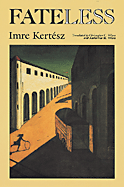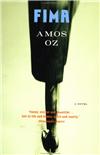 Saul Bellow's Herzog and
Saul Bellow's Herzog and  Henderson the Rain King lay down perfect anti-heroes: an idea-rich eccentric of a letter writer in one and a bad-English-writing American traveler (a sort of unsatisfied Mick Jagger) in another. Woody Allen and many a comic have taken off from here, but Bellow's third-person anti-heroes are three-dimensional works of art instead of contrived indulgences.
Henderson the Rain King lay down perfect anti-heroes: an idea-rich eccentric of a letter writer in one and a bad-English-writing American traveler (a sort of unsatisfied Mick Jagger) in another. Woody Allen and many a comic have taken off from here, but Bellow's third-person anti-heroes are three-dimensional works of art instead of contrived indulgences. Bellow's Humboldt's Gift, meanwhile, is a great guide to the balance problematic set between commerce and artmaking. Answers and solutions may be found in the book or just starting to form in the reader's head.
Bellow's Humboldt's Gift, meanwhile, is a great guide to the balance problematic set between commerce and artmaking. Answers and solutions may be found in the book or just starting to form in the reader's head.
Albert Camus's The Fall. Everything you need to ask, and perhaps refuse to answer well, is here.
 Elias Canetti's Auto-da-Fe. A thick book still worth reading as a black comedy on the possible excesses of a bookworm intelligentsia and, in contrast, the stupidity and corruption of the letter-less masses (and their consequent anger parties). Although, as Salman Rushdie seems to suggest in an edition's blurb quote, the umbrella point may be 'agonising' when read as the same sallow point of each developing chapter.
Elias Canetti's Auto-da-Fe. A thick book still worth reading as a black comedy on the possible excesses of a bookworm intelligentsia and, in contrast, the stupidity and corruption of the letter-less masses (and their consequent anger parties). Although, as Salman Rushdie seems to suggest in an edition's blurb quote, the umbrella point may be 'agonising' when read as the same sallow point of each developing chapter. J.M. Coetzee's Dusklands. The art of the prose and the novel contrasts with the art of expansionist oppression. Sounds like a metaphor, by itself, for the sweet words of imperialism.
J.M. Coetzee's Dusklands. The art of the prose and the novel contrasts with the art of expansionist oppression. Sounds like a metaphor, by itself, for the sweet words of imperialism. Imre Kertesz's Fateless. Reads like the literary version of Schindler's List, but---hey---photographed here also are the shame and fear of ethnicity.
Imre Kertesz's Fateless. Reads like the literary version of Schindler's List, but---hey---photographed here also are the shame and fear of ethnicity. Omar Khayyam's Rubaiyat. Although this is poetry (or verse fiction), this old book's 'storyline' could be read as that, a story. And yes, as probably the most ancient reference/prototype for working-class rock music's rebellion or anti-work anarchism against monarchic or middle-class standards for measuring/defining the good life.
Omar Khayyam's Rubaiyat. Although this is poetry (or verse fiction), this old book's 'storyline' could be read as that, a story. And yes, as probably the most ancient reference/prototype for working-class rock music's rebellion or anti-work anarchism against monarchic or middle-class standards for measuring/defining the good life. James Kelman's How Late It Was, How Late. A book with an obvious significance for this, our generation, a generation constantly soaked in a sublime "police state" sponge, a generation de-blessed by an equally subtle blindness towards the myriad of our time's tragic elements.
James Kelman's How Late It Was, How Late. A book with an obvious significance for this, our generation, a generation constantly soaked in a sublime "police state" sponge, a generation de-blessed by an equally subtle blindness towards the myriad of our time's tragic elements. J.M.G. Le Clezio's Wandering Star and Amos Oz's
J.M.G. Le Clezio's Wandering Star and Amos Oz's  Fima. Two books on the relationship between God, ludicrous gods and their soil, and---more importantly---on the futility of proposing solutions constantly refused by soil- or rock- and wall-attached faiths and politics.
Fima. Two books on the relationship between God, ludicrous gods and their soil, and---more importantly---on the futility of proposing solutions constantly refused by soil- or rock- and wall-attached faiths and politics.
Doris Lessing's Mara and Dann and its sequel  Story of General Dann and Mara's Daughter, Griot and the Snow Dog. First, watch the DVDs of James Burke's BBC Connections series. Then, read these two books on the planet's ultimate rewriting of history by way of reinventing not just the wheel but everything. Everything! Could be a better read than Cormac McCarthy's The Road, if only because Lessing's doesn't just warn us of the scenes to come but reminds us as well of the waste that will be. Great companion to your Mad Max videos.
Story of General Dann and Mara's Daughter, Griot and the Snow Dog. First, watch the DVDs of James Burke's BBC Connections series. Then, read these two books on the planet's ultimate rewriting of history by way of reinventing not just the wheel but everything. Everything! Could be a better read than Cormac McCarthy's The Road, if only because Lessing's doesn't just warn us of the scenes to come but reminds us as well of the waste that will be. Great companion to your Mad Max videos.
 Story of General Dann and Mara's Daughter, Griot and the Snow Dog. First, watch the DVDs of James Burke's BBC Connections series. Then, read these two books on the planet's ultimate rewriting of history by way of reinventing not just the wheel but everything. Everything! Could be a better read than Cormac McCarthy's The Road, if only because Lessing's doesn't just warn us of the scenes to come but reminds us as well of the waste that will be. Great companion to your Mad Max videos.
Story of General Dann and Mara's Daughter, Griot and the Snow Dog. First, watch the DVDs of James Burke's BBC Connections series. Then, read these two books on the planet's ultimate rewriting of history by way of reinventing not just the wheel but everything. Everything! Could be a better read than Cormac McCarthy's The Road, if only because Lessing's doesn't just warn us of the scenes to come but reminds us as well of the waste that will be. Great companion to your Mad Max videos. Jose Saramago's The Stone Raft. A fable with an obvious political, social, and human significance for a geo-politicized generation, from a Portuguese communist who writes beyond the confines of sheer partisanship for the joys of meager existence.
Jose Saramago's The Stone Raft. A fable with an obvious political, social, and human significance for a geo-politicized generation, from a Portuguese communist who writes beyond the confines of sheer partisanship for the joys of meager existence. Aleksandr Solzhenitsyn's Cancer Ward. The beauty and sadness of political imprisonment, deception, and escape. Naturalism's triumph under duress.
Aleksandr Solzhenitsyn's Cancer Ward. The beauty and sadness of political imprisonment, deception, and escape. Naturalism's triumph under duress. Gao Xingjian's Soul Mountain. Character You dramatizes a carefree escape to a world of loquacious creativity and freedom he finds in nature away from society and mostly inside his individuality. Character I narrates a travelogue into real life quite against the unreal/surreal one misdiagnosed by society on its people.
Gao Xingjian's Soul Mountain. Character You dramatizes a carefree escape to a world of loquacious creativity and freedom he finds in nature away from society and mostly inside his individuality. Character I narrates a travelogue into real life quite against the unreal/surreal one misdiagnosed by society on its people.

